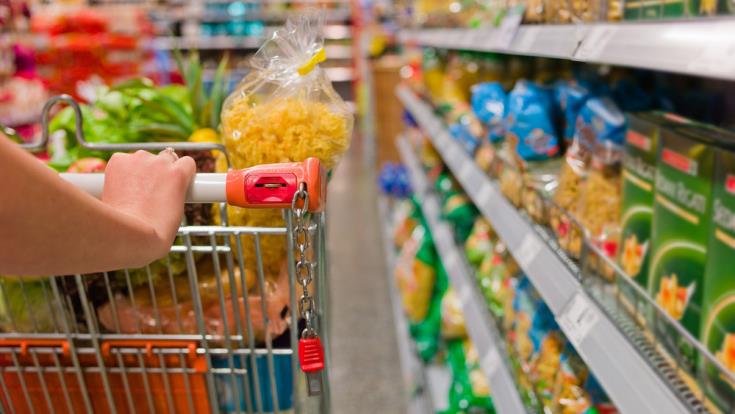Cyprus is in for a surge in inflation, as the skyrocketing price of grain pushes up prices of essential goods across the board, from bread and milk to cheese and meat.
The price of grain indented for animal feed has shot up by 50%, while wheat used to prepare bakery products has increased by 30%.
As a result, the overall increase in the cost of animal feed has reached 70%.
Specifically, the price of cereals for human use, known as durum wheat, has gone from €350 per tonne in September 2020 to €450 per tonne and moving upwards.
In terms of cereals for animal feed, the price of maize in September 2020 was €187 per tonne; now, it’s €284 per tonne.
Price increases of grain and wheat products will push up the production cost of essential goods such as milk, cheese, eggs, and meat.
At the same time, due to increases in the price of durum wheat, price increases are expected for bread and pasta.
The increase in prices is expected to be passed down to consumers at supermarkets and bakeries.
Estimates put the price of bread going up by 15-20%, spaghetti 15-20%, cereals 20%, flour 11%, croissants 5%, biscuits 5%, frozen fruit 10%, frozen fish 13%, detergents 4.5%, coffee 7%, and butter 6%.
Rising food prices are already a concern for households under strain from increasing utility bills and fuel.
According to the latest CyStat data, households saw a 14% increase in water, electricity, and gas bills in September alone.
In addition, transport costs have also gone up by 11.5% on average.
The increase in grain and wheat prices in Cyprus follows a global pattern, increasing demand pushing up prices and creating shortages across Europe.
Cyprus is in trouble as the state has failed to maintain stocks of feed and wheat for human use under the legislation that came into force seven months ago.
The recently introduced legislation foresees that a strategic stock of 30,000 tonnes of grain and wheat should be stored in an emergency.
However, media reports claim there are currently no stocks.
To make matters worse, transportation costs have shot up, with the cost of importing raw materials from abroad soaring.
The cost of bringing in a container to the island has gone from an average of €3,000 a few months ago to a staggering €17,000.
This created a shortage of raw materials in the market, which was solved to some extent, as some 20,000 tonnes of grain and wheat were imported this week.
Grain and wheat prices are skyrocketing due to several factors, such as the high demand for cereals from countries that did not consume cereals before and transportation issues.
Countries such as China, which traditionally consumed smaller amounts of meat, have shifted their diet, seeking more grain.
Furthermore, dry weather conditions prevailing on the island have decreased production, while large areas of land formerly used for agriculture are now being taken up by Renewable Energy Sources projects, such as solar parks.
The Agriculture Ministry is looking at supporting farmers and cattle breeders.
Dairy producers also seem to be in difficulty as they have orders taken with prices set before the increase in animal feed.










